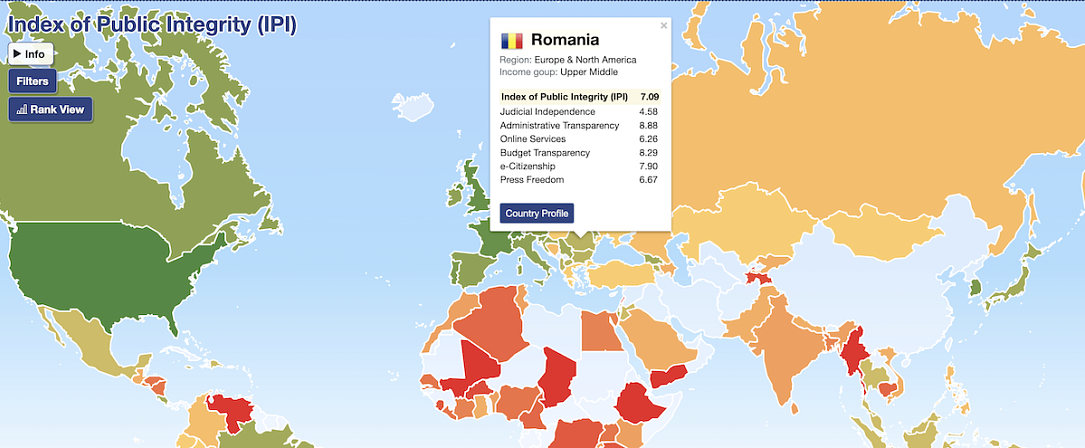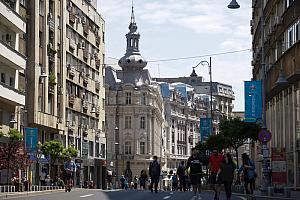Romania dragged down by judicial independence and press freedom in Index of Public Integrity

With 7.09 points on a 0-10 scale, where 10 indicates the highest control of corruption, Romania ranks 42nd in the survey carried out by the European Research Center for Anti-corruption and State-building (ERCAS), ahead of Poland and Hungary in the region but under Bulgaria and notably Moldova.
Romania’s score is dragged down by weak judicial independence (4.58 points) and modest press freedom (6.67 points). The country also performs disappointingly when it comes to online (public) services: only 6.28 points.
The Republic of Moldova is among the 22 countries that have registered improvements in the control of corruption, while Romania is stagnating, the ERCAS report reads.
The IPI ranking is dominated by the northern European countries (Baltics included): Denmark, Norway, Finland, New Zealand and Estonia (which surpassed the US), according to a press release from the Romanian Academic Society (SAR).
ERCAS country profile Romania
Romania has progressed in online services and e-citizenship but is stagnating at a mediocre level of judicial independence for an EU country.
Its media has managed to maintain itself due to an increase in government funds after the pandemic (which also has its downside in terms of media dependence from government), but it plays an ambiguous role, with entire media outlets belonging to or bought by corrupt individuals, many already sentenced to jail, and thus advocating against anti-corruption or the general interest.
Social media is only an extension of this moral ambiguity of traditional media.
A renewed bid to join OECD might step up some reforms, but some long term post-communist governance features do not allow much progress.
A chief problem is the extensive meddling of secret services in a variety of civilian affairs – for example, by organizing direct voting counting and vaccinations and by participating through their semi-covert companies in public procurement in a variety of policy areas. The result is a substantial secret segment of an otherwise transparent budget.
iulian@romania-insider.com
(Photo source: screenshot from Corruptionrisk.org)













